UN Warns Of 'Full-scale Humanitarian Crisis' In Ethiopia Conflict
The UN said Tuesday that a full-blown humanitarian crisis was unfolding in northern Ethiopia, where thousands of people each day are fleeing the conflict in the Tigray region.
The warning came as diplomats and humanitarian officials reported heavy fighting in northern and southern Tigray, and as federal forces claimed "major victories" that would bring them closer to the regional capital Mekele.
A communications blackout in Tigray throughout the two-week conflict has made claims of advances difficult to verify.
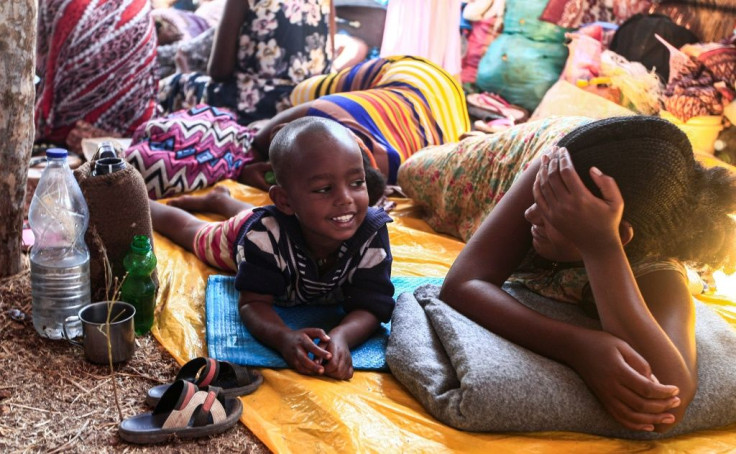
Prime Minister Abiy Ahmed, last year's Nobel Peace Prize winner, announced the military campaign in Tigray on November 4, saying it came in response to attacks by the local ruling party, the Tigray People's Liberation Front (TPLF), on federal military camps.
The UN refugee agency said Tuesday that around 27,000 Ethiopians had fled across the border into Sudan -- a figure now rising by around 4,000 people each day.
"A full-scale humanitarian crisis is unfolding," spokesman Babar Baloch told a virtual press briefing from Geneva.
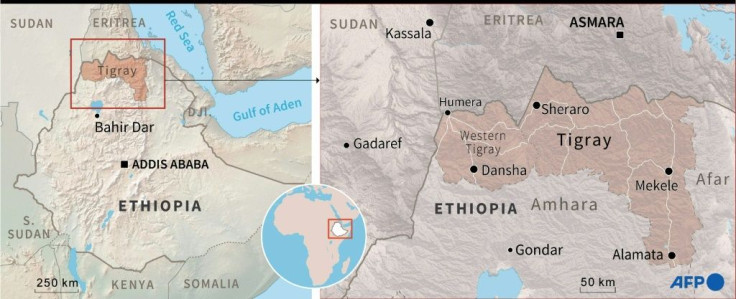
"Refugees fleeing the fighting continue to arrive exhausted from the long trek to safety, with few belongings."
Those arriving in Sudan recounted terrifying scenes of artillery barrages and massacres.
"I saw bodies dismembered by the explosions," said Ganet Gazerdier, 75, whose home was destroyed in the town of Humera, and finds herself at a refugee camp in eastern Sudan.
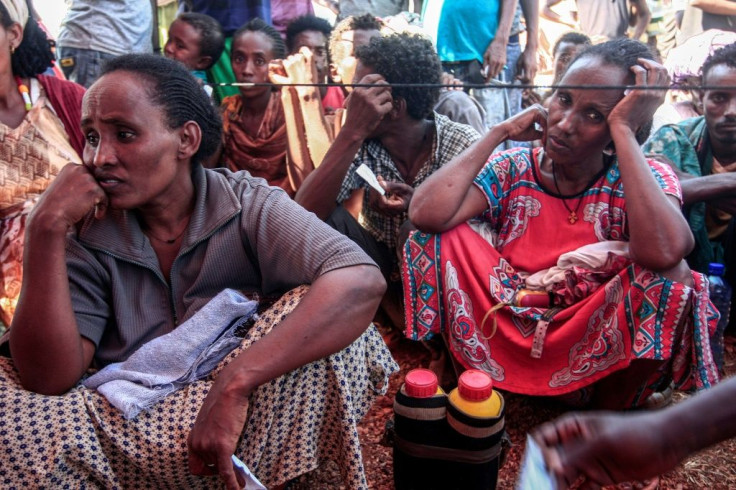
"Other bodies were rotting, lying on the road, murdered with a knife", she added.
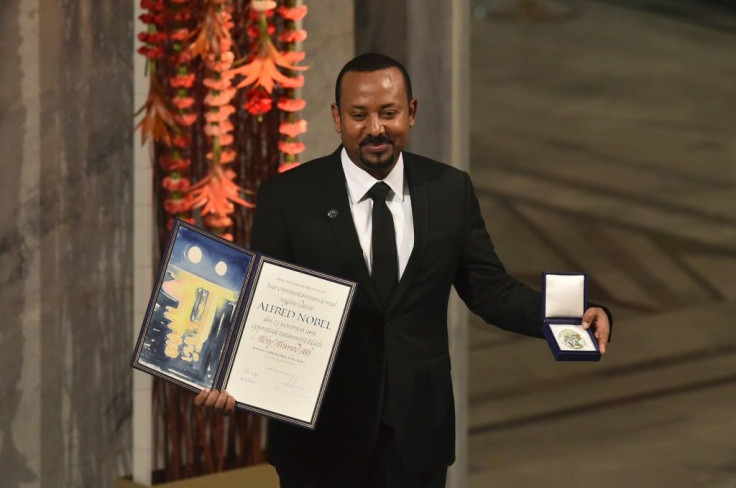
On Friday Abiy declared the TPLF was "in the final throes of death" and gave regional troops three days to "rise up" and side with the national army.
In a Facebook post Tuesday morning, he said their time was up and that "in the coming days the final law enforcement activities will be done".
A government statement Tuesday evening said federal forces controlled multiple towns in southern Tigray and were "pacing to Mekele", getting as close as Mehoni, roughly 125 kilometres (78 miles) to the south.
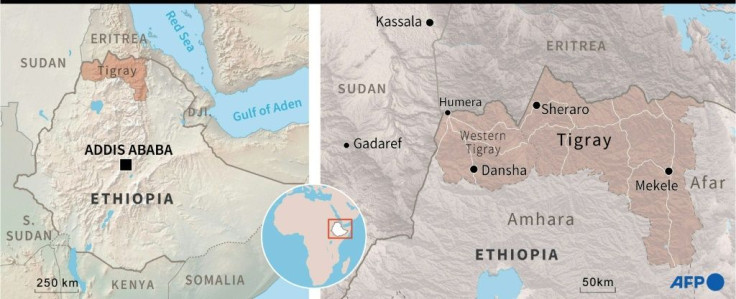
Federal forces already claimed to control Tigray's western zone, where fighting has been heavy, and over the weekend said they had seized the southern town of Alamata.
Fierce clashes occurred Tuesday in the region surrounding Alamata as well as in the northern town of Shire, where camps house thousands of Eritrean refugees, diplomats and humanitarian officials said.
Also on Tuesday, a government statement said the army had carried out "precision led and surgical air operations" outside Mekele on Monday.
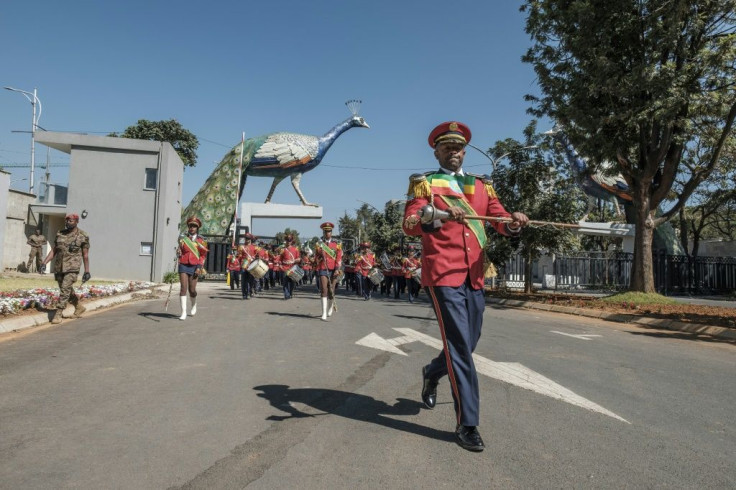
Tigrayan leader Debretsion Gebremichael said the strikes caused civilian casualties, which the government denied.
Diplomats say it is far from clear that federal forces will be able to quickly defeat the TPLF, which has considerable military assets and an estimated 250,000 troops fighting on mountainous terrain they know well.
The Ethiopian military is estimated at 150,000 troops, though that does not include special forces and militias.
Debretsion said Tuesday that "the government and people of Tigray" would hold their ground.
"This campaign cannot be finished. As long as the army of the invaders is in our land, the fight will continue."
Abiy has resisted calls by world leaders to cease hostilities.
His government has said there can be no mediation until Tigray's leaders have been disarmed and brought to court.
Abiy and his staff gathered at his office compound in Addis Ababa on Tuesday to salute the armed forces, waving flags as a military marching band played before holding their hands over their hearts during an extended moment of silence.
Similar ceremonies took place throughout the capital, with participants denouncing the TPLF.
"The government and the people you see today didn't come out because they like war, but they want to terminate the criminal junta once and for all," Addis Ababa resident Henok Lemma told AFP.
The TPLF dominated Ethiopian politics for three decades before Abiy came to power in 2018.
The military operations kicked off after months of worsening tensions as TPLF leaders were sidelined and became ever more defiant of the federal government.
In recent days the TPLF has fired rockets on airports in Ethiopia's Amhara region, south of Tigray, and in the capital of neighbouring Eritrea.
The strikes on Asmara in particular have reinforced fears that Ethiopia's conflict could draw in the wider Horn of Africa region.
US Secretary of State Mike Pompeo condemned the strikes while commending "Eritrea's restraint, which has helped prevent further spreading of the conflict."
© Copyright AFP 2024. All rights reserved.





















